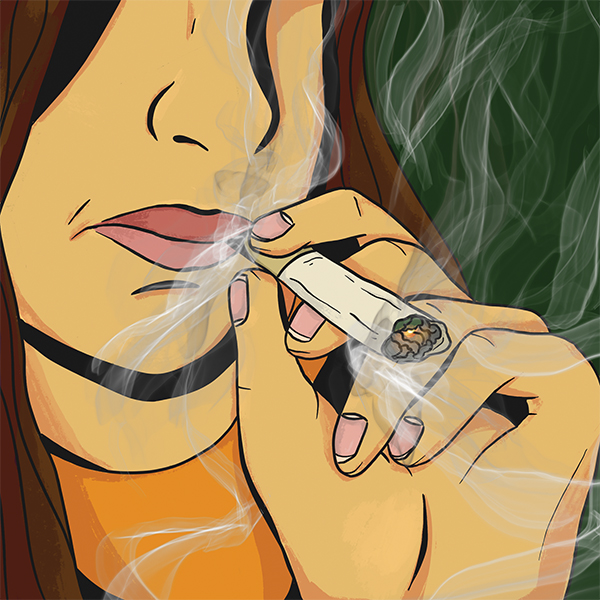The University of Texas at Austin Police Department will still issue citations, fines and arrests for low-level amounts of marijuana possession following Austin City Council’s resolution last month, which stopped funding the Austin Police Department to test whether a substance is marijuana or hemp. Hemp, which is similar to marijuana, has a lower percentage of tetrahydrocannabinol, or THC, and is now legal in Texas.
UTPD can continue to test with the use of state funds because it’s a state-funded department, UTPD Sgt. Chris Vela said. However, Vela said state labs typically only conduct tests for felony cases of possession, which are defined as larger than four ounces.
“All of our officers are state peace officers, so we’re going to enforce state law,” Vela said.
Vela said individuals found with two ounces or less of marijuana can incur a Class B misdemeanor, which can result in up to 180 days in jail or a fine of up to $2,000. He said a Class A misdemeanor could be issued if two to four ounces of marijuana are found, and this can carry a penalty of up to a year in jail and a $4,000 fine. Anything greater than four ounces is considered a felony.
“If we find somebody that’s in possession of a suspected drug, the officers are going to seize that item … then most of the time, that’s going to be sent over to a lab to test if we’re going to end up trying to charge somebody with it,” Vela said, “If an officer seizes the drug but they don’t choose to file charges, meaning give them a citation or arrest them, that’s within the officer’s discretion.”
Lab tests can take several weeks to several months, Vela said.
James Lee, co-president of UT Students for Sensible Drug Policy, an organization that works to reform drug policy, said sending in all low-level possession tests would prove difficult.
“It would be ridiculous for them to send all (possession cases) for testing,” Lee, a philosophy and sociology senior, said. “I think they’re just trying to scare people.”
UTPD may also defer to the University for cases of drug possession, Vela said.
“(If) somebody doesn’t have a criminal record … the officers can still seize that drug and take it into evidence, but instead of charging somebody, we can use the UT administration avenue of having a conversation with them versus having to go to court,” Vela said.
Vela said UTPD might also issue a citation and release for misdemeanor possession, which has individuals sign that they will appear in court at a later date.
“If you’ve ever gotten a speeding ticket, this is the same procedure,” Vela said. “You’ll have a court date … and go through those processes.”
Allyson Todd, co-president of UT Students for Sensible Drug Policy, said a problem with UTPD’s marijuana enforcement is a lack of consensus.
“I don’t think that (there’s) a problem with people thinking it’s fully been legalized,” said Todd, an international relations and global studies senior. “I think it is difficult for students to understand how to navigate … marijuana laws changing a lot.”





















